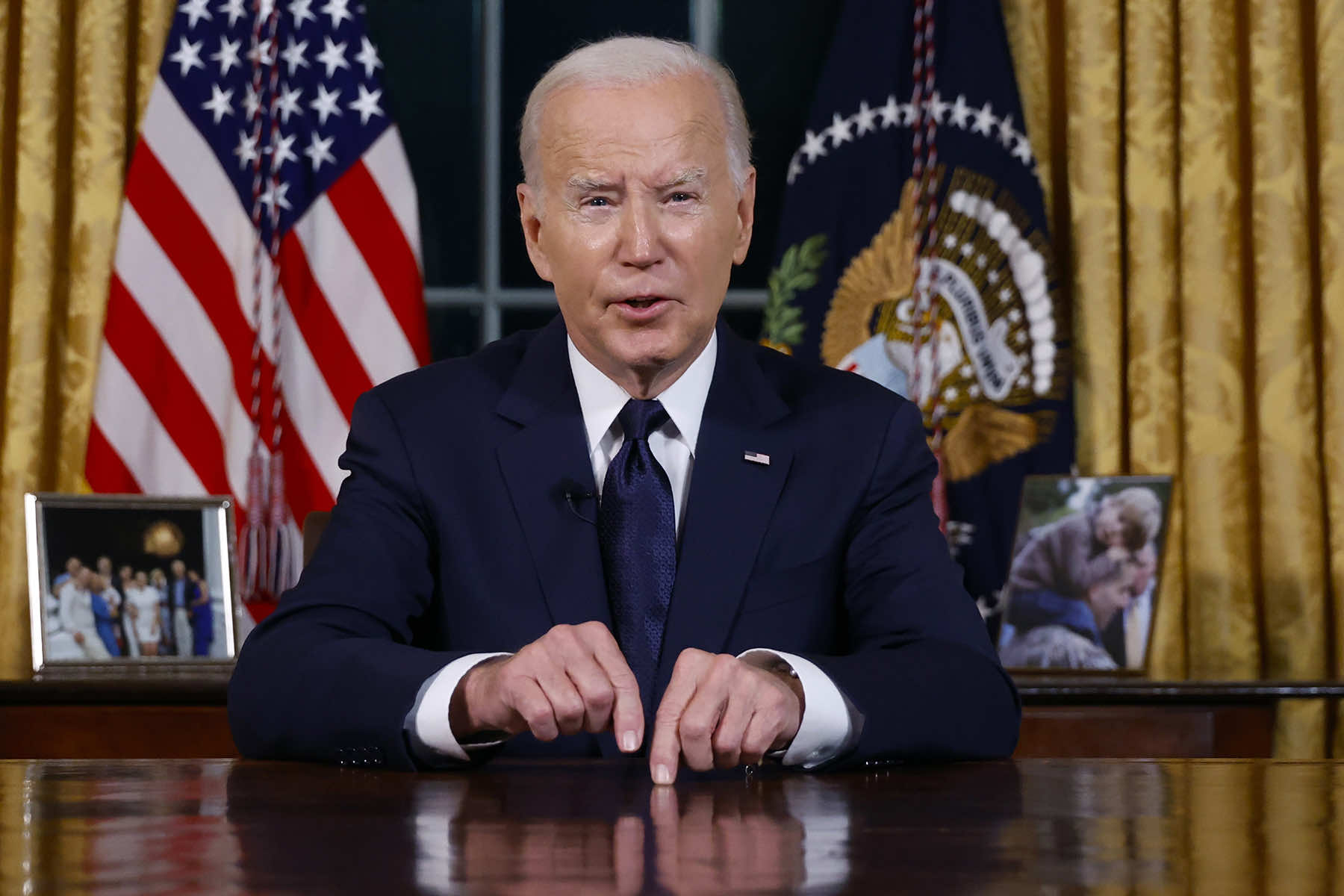
In the early days and hours after the horrific Hamas attack on Israeli civilians on October 7, President Joe Biden spoke with stark declarations and unqualified support for the longtime U.S. ally.
Now, a month on, that unambiguous backing has given way to the complexities and haunting casualties of the war, and the Biden administration is imploring Israel to rein in some of its tactics to ease civilian suffering in Gaza.
As condemnation of the conflict has grown around the world, stoking anti-Israel sentiment, the Democratic president is also confronting the limits of the U.S. ability to direct the outcome — not only about the war, but what comes after it.
“There’s no going back to the status quo as it stood on October the 6th,” Biden said three weeks after the attack. But even if Israel is successful in crippling or eradicating Hamas, there will also need to be a shift in Washington, where successive U.S. administrations have sought to manage the Middle East conflict and where the political will has been lacking to devise ways to end it.
And yet the path forward is uncertain, at best. “It’s entirely unclear if there is a ‘morning after,'” said Shibley Telhami, the Anwar Sadat Professor for Peace and Development at the University of Maryland. He noted this could be “an extended period of violence at a different scale for many, many months or years to come.”
“But if there is something possible, they can’t just put a plan on the table,” he added. “They have to take new American positions of their own, that are transformative, that are different, that are like something we have not seen.”
Telhami said after his staunch support for Israel, the president would need to take equally dramatic steps to secure buy-in from Palestinians to bring about a political resolution to the conflict, starting with reining in Israeli settlements in the West Bank that Palestinians view as infringing on their future state.
In recent weeks, U.S. officials have held internal discussions and talks with allies on post-Hamas governance in Gaza, and resurrected talk of working toward a two state solution, with, as Biden expressed on November 12 to Qatar’s emir, Sheikh Tamim bin Hamad Al Thani, a “future Palestinian state where Israelis and Palestinians can live side by side with equal measures of stability and dignity.”
Yet there has been little progress on how to get there, and some in the Biden administration have grown increasingly worried that the mounting death toll in Gaza will make that aim even more difficult.
U.S. Secretary of State Antony Blinken, who last week appeared to criticize Israel for not doing enough to minimize harm to civilians among whom Israel says Hamas seeks shelter, has called for a return to unified Palestinian governance over the West Bank and Gaza under the beleaguered Palestinian Authority. The internationally recognized group lost control over Gaza to Hamas in 2007, and is viewed skeptically among its own populace for perceived cooperation with Israel.
Jake Sullivan, Biden’s national security adviser, on November 12 went further, laying out a vision of what the U.S. sees as a path forward, but one that still has no buy-in from key players in the region.
In an interview on CBS’ “Face the Nation,” Sullivan said that “the basic principles of the way forward are straightforward.” That path, he said, included “no reoccupation of Gaza, no forcible displacement of the Palestinian people. Gaza can never be used as a base for terrorism in the future and Gaza’s territory should not be reduced.”
The Palestinian Authority has openly dismissed that notion. “We are not going to go to Gaza on an Israeli military tank,” Prime Minister Mohammad Shtayyeh told PBS recently.
“The Palestinian Authority is saying it doesn’t want to take on the task that the Biden administration is pushing unless it gets some kind of real commitment to a major diplomatic initiative leading to a two-state outcome,” said Nathan Brown, professor of political science and international affairs at George Washington University.
Within the Democratic Party, there are also clear signs of discord. Nearly half of Democrats disapprove of how President Joe Biden is handling the Israel-Hamas conflict, according to a new poll from The Associated Press-NORC Center for Public Affairs Research — showing a deep divide within his party over the war.
In Congress, so far there is no consensus about Biden’s proposal to pass an aid package that includes assistance to Israel, Ukraine, and Taiwan, and additional money to address issues at the southern border of the U.S.
There are also emerging signs of division between the U.S. and Israeli positions on the war’s endgame, with Prime Minister Benjamin Netanyahu insisting that Israel will retain security control over Gaza for the long term, a stance the White House has rejected, and ruling out alternatives like an international monitoring force.
“The only force right now that can guarantee that Hamas, that terrorism is not – does not reappear and take over Gaza, again, is the Israeli military,” Netanyahu told NBC’s “Meet the Press.” “So overall, military responsibility will have to be in Israel.”
And in an interview with CNN’s “State of the Union,” a defiant and entrenched Netanyahu appeared to rule out returning Gaza to the Palestinian Authority, saying whatever group takes over must “demilitarize” and “de-radicalize Gaza.”
“There has to be a reconstructed civilian authority,” he said of the Palestinian Authority. “There has to be something else.”
More than 1,200 Israelis, mostly civilians, were killed when Hamas fighters launched a surprise attack on Israeli border communities, in the deadliest day for Jews since the Holocaust. Nearly 240 — including children and the elderly — remain captive in Gaza, Israeli officials say.
Israel’s war to “destroy” Hamas in Gaza has killed more than 11,000 Palestinians, the Health Ministry in Hamas-run Gaza says, though it does not differentiate between civilians and fighters. The U.S. believes thousands of women and children are among the dead.
Until Hamas’ attack, Biden’s administration had largely relegated the region on the back burner, as it focused first on a pivot to Asia then on responding to Russia’s invasion of Ukraine. Now, Biden faces a challenge that has splintered his political support at home and the unity of U.S. allies abroad.
“Clearly, Israel has the military ability to take out Hamas,” said Senate Intelligence committee chairman Senator Mark Warner, D-VA, on Fox News Sunday. “But this is also a battle about hearts and minds – hearts and minds in terms of maintaining support for Israel in this country, in the world and in the region.”




















